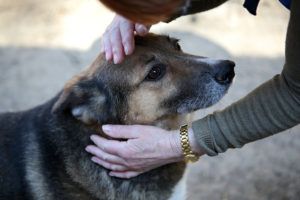Study: Getting cats to scratch where they should instead of where they shouldn’t
Cats scratch. They scratch where they should — cat trees, scratch pads — and where they shouldn’t — drapes, carpets, furniture. Scratching is a natural and important activity for cats, but it can come into conflict when cats practice it in a human home. At the 2014 Maddie’s® Shelter Medicine Program at the University of… Learn More










